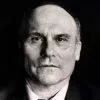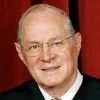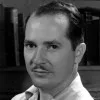Of course everybody likes and respects self-made men. It is a great deal better to be made in that way than not to be made at all.
Quotations about:
person
Note not all quotations have been tagged, so Search may find additional quotes on this topic.
FALSTAFF:O powerful love,
that in some respects makes a beast a man, in
some other a man a beast!William Shakespeare (1564-1616) English dramatist and poet
Merry Wives of Windsor, Act 5, sc. 5, l. 4ff (5.5.4-6) (1597)
(Source)
LEAR: I am a man
More sinned against than sinning.William Shakespeare (1564-1616) English dramatist and poet
King Lear, Act 3, sc. 2, l. 62ff (3.2.62-63) (1606)
(Source)
From my point of view, no label, no slogan, no party, no skin color, and indeed no religion is more important than the human being.
James Baldwin (1924-1987) American novelist, playwright, activist
Comment (1963)
(Source)
Included in Karen Thorsen, et al., James Baldwin: The Price of the Ticket, film (1989), a film biography of Baldwin using extensive archival film of the author (the project was started before Baldwin's death, and Baldwin intended to direct it).
I have found, without good citation, two broader contexts for the quotation. First:The very dangerous effort one has got to make, according to me, is to deal with other people as though they were simply human beings. To remember that no matter what the details of their lives may be like, or how different they may seem to you superficially, or what the social pressures outside of what the psychological pressures are within, to deal with this other human being precisely as though he or she was here for the first and only time. To deal with them in some way that you’d like them to deal with you, no matter the price. From my point of view, no label, no slogan, no party, no skin color, and indeed no religion, is more important than the human being. The human core in everybody, which liberates you and me, because when the chips are down this is all there is -- there isn’t anything else.
The second looks to be a paraphrase of the above:We must all make the effort to deal with all people simply as human beings. From my point of view, no label, no slogan, no party, no skin color, and indeed no religion is more important than the human being. When the chips are down, this is all that matters.
Without better documentation, I cannot confirm either version.
The love of our neighbor in all its fullness simply means being able to say to him: “What are you going through?” It is a recognition that the sufferer exists, not only as a unit in a collection, or a specimen from the social category labelled “unfortunate,” but as a man, exactly as we are, who was one day stamped with a special mark by affliction.
Simone Weil (1909-1943) French philosopher
“Studies with a View to the Love of God” (Apr 1942), Waiting for God [Awaiting God; Attente De Dieu] (1950)
(Source)
A person, an individual being, has a thousand ways of conveying his feelings and thoughts. He is riches without end, he is a world in which we can always discover something new. A crowd, on the other hand, reduces the individuality of the person; a man in a crowd limits himself to a few forms of elementary behavior. The forms through which a crowd can express its yearnings are extraordinarily meager and continually repeat themselves: the demonstration, the strike, the rally, the barricades. That is why you can write a novel about a man, but about a crowd — never.
Ryszard Kapuściński (1932-2007) Polish journalist, photographer, poet, author
Shah of Shahs, Part 3 “The Dead Flame” (1982)
(Source)
The man is nothing, the work all!
[L’homme n’est rien, l’oeuvre tout!]
Gustave Flaubert (1821-1880) French writer, novelist
Letter to George Sand (Dec 1875)
Original French. Arthur Conan Doyle misquoted this in "The Red-Headed League" as "L'homme c'est rien -- l'oeuvre c'est tout."
Our law affords constitutional protection to personal decisions relating to marriage, procreation, contraception, family relationships, child rearing, and education. Our cases recognize “the right of the individual, married or single, to be free from unwarranted governmental intrusion into matters so fundamentally affecting a person as the decision whether to bear or beget a child.” Our precedents “have respected the private realm of family life which the state cannot enter.” These matters, involving the most intimate and personal choices a person may make in a lifetime, choices central to personal dignity and autonomy, are central to the liberty protected by the Fourteenth Amendment. At the heart of liberty is the right to define one’s own concept of existence, of meaning, of the universe, and of the mystery of human life. Beliefs about these matters could not define the attributes of personhood were they formed under compulsion of the State.
Anthony Kennedy (b. 1936) US Supreme Court Justice
Planned Parenthood v. Casey (91-744), 505 U.S. 833 (29 Jun 1992) [Majority Opinion]
(Source)
Citations removed.
THE SERGEANT: When men and women pick one another up for just a bit of fun, they find they’ve picked up more than they bargained for, because men and women have a top story as well as a ground floor, and you can’t have the one without the other.
George Bernard Shaw (1856-1950) British playwright and critic
Too True to Be Good, Act 3 (1932)
(Source)
Feminism: The radical notion that women are people.
Marie Shear (1940-2017) American writer and feminist activist
“Media Watch: Celebrating Women’s Words,” New Directions for Women (May/Jun 1986)
(Source)
Often misattributed to Cheris Kramarae and Paula Treichler, A Feminist Dictionary (1985), which was the subject of Shear's review.
A transition from an author’s book to his conversation, is too often like an entrance into a large city, after a distant prospect. Remotely, we see nothing but spires of temples and turrets of palaces, and imagine it the residence of splendour, grandeur and magnificence; but when we have passed the gates, we find it perplexed with narrow passages, disgraced with despicable cottages, embarrassed with obstructions, and clouded with smoke.
Samuel Johnson (1709-1784) English writer, lexicographer, critic
The Rambler, #14 (5 May 1750)
(Source)
He was a one-book man. Some men have only one book in them; others, a library.
Sydney Smith (1771-1845) English clergyman, essayist, wit
Memoir of the Reverend Sydney Smith, by His Daughter, Lady Holland, Vol. 1, ch. 11 (1855)
(Source)
ANTONIO: In nature there’s no blemish but the mind;
None can be called deformed but the unkind.William Shakespeare (1564-1616) English dramatist and poet
Twelfth Night, Act 3, sc. 4, l. 386ff (3.4.386-387) (1601)
(Source)














